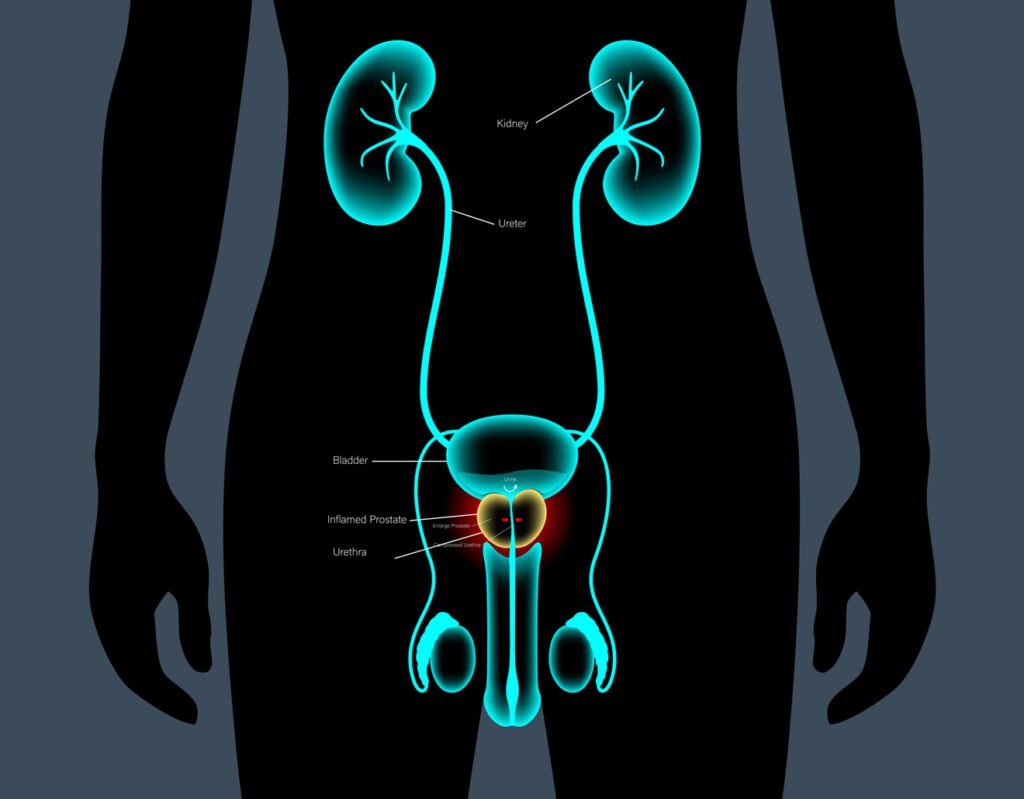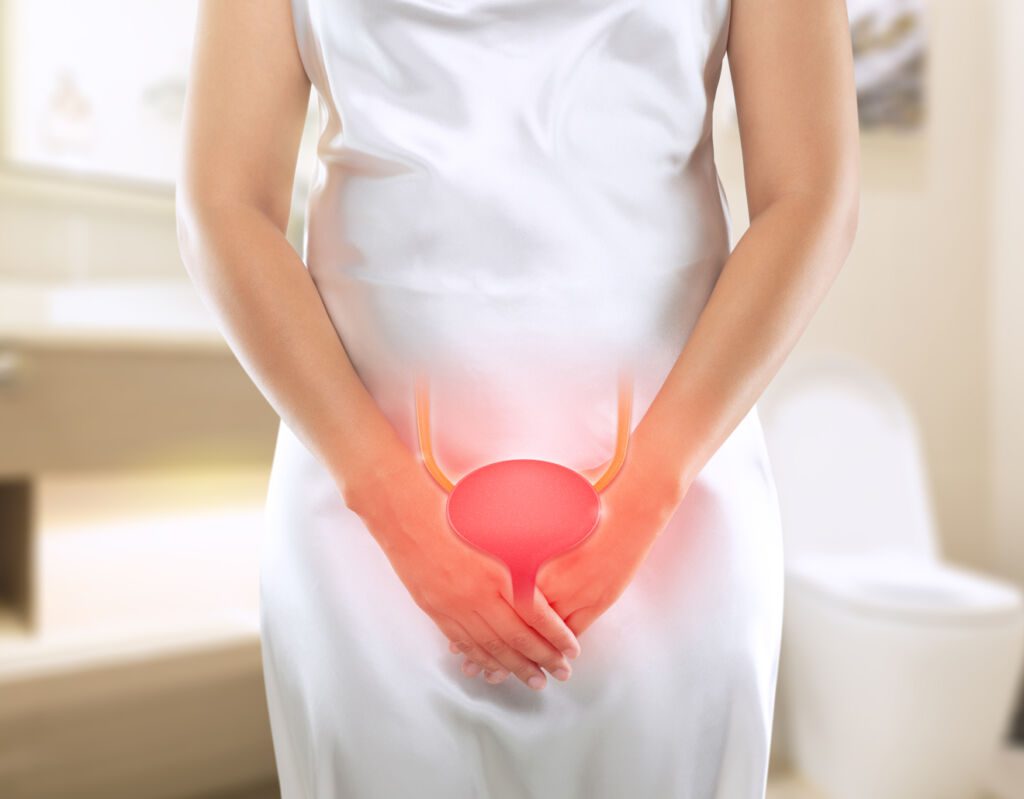In our Urology and Renal Surgery department, we have a latest-generation holmium laser for the treatment of lithiasis.
Urological surgery is concerned with the diagnosis and treatment of congenital, infectious, lithiasis, traumatic and tumour diseases of the male and female urinary tract and the male genital tract:
- Diseases of the kidneys, prostate and bladder
- Urothelial diseases:
Urothelial diseases are a group of disorders that affect the cells that line the urinary tract. This includes the bladder, urethra and kidneys. These conditions include bladder cancer, prostate cancer, kidney cancer, bladder stones and interstitial cystitis (painful bladder syndrome). - Nephroureterectomy: This procedure involves the removal of a kidney and its duct from the ureter to the bladder.
- Enlarged nephrectomy, adrenalectomy, paediatric surgery, urethral surgery, external genital organs…


KIDNEY DISEASES
Lithiasis (managed by the Department of Urology and Kidney Surgery) is a group of diseases in which stones are formed in the body. The word ‘lithiasis’ comes from the Greek lithos, meaning stone, and -iasis, meaning disease. Stones can form for many reasons, including infection, kidney disease or cancer.
Lithiasis is treated with a variety of medical procedures:
- Semi-rigid and flexible ureteroscopy, laser fragmentation, ureteral stent placement.
- Flexible ureteroscopy can be used to treat certain kidney stones, percutaneous nephrolithotomy (NLPC), open surgery, pyelotomy …
- Nephroureterectomy: This is a procedure to remove a kidney and its duct from the ureter to the bladder.
- Nephrectomy: Removal of part or the entire kidney
PROSTATE CONDITIONS
Common prostate conditions include benign enlargement (benign prostatic hyperplasia, BPH), inflammation (prostatitis) and malignant degeneration (prostate cancer).
The different types of intervention proposed (within the Department of Urology and Renal Surgery), depending on the case of each patient, can be
- Endoscopic resection of the prostate,
- Prostatectomy,
- Transurethral adenomectomy…
- Destruction of prostate tissue to clear the urethral canal (vaporisation),
- The removal of prostate tissue for analysis (prostate resection),
- Monobloc enucleation of prostate adenoma (prostate enucleation).
These last two techniques allow the anatomopathological analysis of adenoma fragments (microscopic analysis of the removed part of the prostate).


BLADDER DISEASES
Our team of surgeons (part of the Department of Urology and Renal Surgery) treats bladder diseases using various procedures:
- Cystectomy: surgery to remove the bladder under general anaesthetic. It is used to treat certain types of cancer. It may be done by laparotomy or coeliosurgery.
- Bladder tumour resection: The aim is to remove the tumour to limit the progression of the disease and reduce the risk of recurrence. There are several types of surgery, depending on the stage of the tumour. If the cancer has not infiltrated the muscle, it is sufficient to remove the tumour by endoscopy. If there is a high risk of metastasis, removal of the bladder is necessary.
You ask, our teams answer.
F.A.Q
Bladder cancer (treated in the Department of Urology and Renal Surgery) is the abnormal growth of cells in the bladder. The bladder is a hollow organ that stores urine. Urine leaves the body through a tube called the urethra.
Bladder cancer develops slowly and painlessly, so it is often diagnosed at an advanced stage. However, certain symptoms can help detect bladder cancer at an early stage.
Symptoms of bladder cancer include:
- Blood in the urine (haematuria)
- Pain when passing urine or blood in the urine (haematuria)
- Urgency or frequency of urination
Transvertical adenomectomy is a medical procedure to remove an adenoma. An adenoma is a mass of tissue that develops from a gland in the body. During the procedure, a special instrument called an endoscope is used to look inside the body and remove the tumour through a small incision in the skin.
transvesical adenomectomy is used to treat several types of tumour, including:
Endometrial cancer – a type of uterine cancer that starts in the lining of the uterus (endometrium). If left untreated, it can spread to other parts of the body.
Cervical cancer – A type of cancer that starts in the cells on or near the cervix (lower part of the womb). If left untreated, it can spread to other parts of the body through the lymph nodes and organs around the pelvis.
Ovarian cancer – A type of cancer that develops in one or both ovaries (a woman’s reproductive glands). If left untreated, ovarian cancer can spread to other parts of the body through the lymph nodes and organs around the pelvis.
Lithiasis, also known as kidney stones, is a condition characterised by the formation of solid crystals in the kidneys or urinary tract. It is usually caused by high levels of certain minerals in the urine, such as calcium or uric acid.
In most cases, kidney stones are relatively small and pass through the urine without pain or complications. Occasionally, however, stones can cause severe pain and block the urinary tract, leading to kidney failure and other serious health problems.

